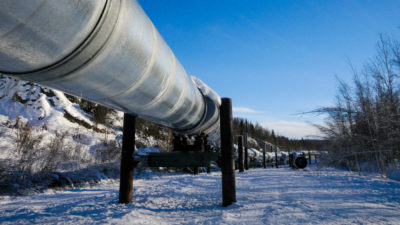In a surprise move, the Trump Administration has asked Saudi Arabia and the rest of OPEC to boost oil production by up to one million barrels per day. This comes after of Trump’s April 2018 tweet in which he claimed that OPEC was artificially inflating the price of crude, causing the international benchmark Brent to break through the US$80-per-barrel barrier. Then there were announcements by Riyadh and Moscow that they are considering opening the spigots and boosting production, which sent jitters through global oil markets, causing prices to fall from their four-year highs.
As a result, energy stocks have pulled back sharply in recent weeks after the North American benchmark West Texas Intermediate (WTI) fell from over US$70 per barrel to trade under US$65. This is not good news for Canada’s energy patch, which has suffered under the weight of sharply weaker crude for four years.
This has caused a number of Canadian energy stocks, including Cenovus Energy Inc. (TSX:CVE)(NYSE:CVE), to pull back sharply over the last month. The heavy oil producer saw its value drop by 4% over that period to see it trading at less than half of its pre-oil-slump high. While some pundits believe this has created an investment opportunity, there are signs that Cenovus’s performance will continue to lag.
Now what?
Cenovus, like a large number of Canadian energy companies, is focused on the production of heavy crude known as Western Canadian Select (WCS), which sells at a steep discount to WTI. That discount is currently close to US$20 a barrel, magnifying the impact of weaker oil prices on their financial performance. This — along with a number of other factors — has weighed on Cenovus’s performance. Despite first-quarter 2018 liquids production more than doubling compared to a year earlier to 395,146 barrels daily and natural gas output rising to 553 million cubic feet (MMcf) daily, Cenovus saw its net earnings slump to a $654 million loss.
That can be attributed to a range of factors, key being a sharp decline in the average realized sale price for the quarter. This was 12% lower than a year earlier, predominantly because of a significant decline in natural gas prices. Cenovus’s significant increase in natural gas production came from the 2017 $17.7 billion acquisition of ConocoPhillips’s Canadian assets, which included three million acres in Alberta’s Deep Basin natural gas formation.
While higher oil prices should have given Cenovus’s earnings a solid lift, the considerable discount applied to WCS limited that upside. Higher royalties and transportation and blending costs, which were up by 33% and 7.5% year over year, respectively, also impacted Cenovus’s bottom line.
These factors caused the company’s netback for the quarter, an important measure of operational profitability, to tumble by 21% year over year to $16.80 per barrel.
The marked decline in earnings caused Cenovus’s debt-to-EBITDA ratio, a meaningful measure of financial health, for the first quarter to more than double compared to a year earlier; debt became worth 3.3 times Cenovus’s earnings before interest, tax, depreciation, and amortization. This indicates that Cenovus’s balance sheet is not as robust as it needs to be in an operating environment where the outlook for crude and natural gas remains uncertain.
So what?
The substantial increase in natural gas reserves and production has harmed Cenovus’s operational profitability, mainly because of the ongoing weakness of natural gas. Despite the increasingly positive outlook for natural gas, this — along with the deep discount applied to Cenovus’s heavy oil production and its highly leveraged balance sheet — makes it an unappealing play on higher oil. There are far more attractive opportunities in Canada’s energy patch for investors to consider.







